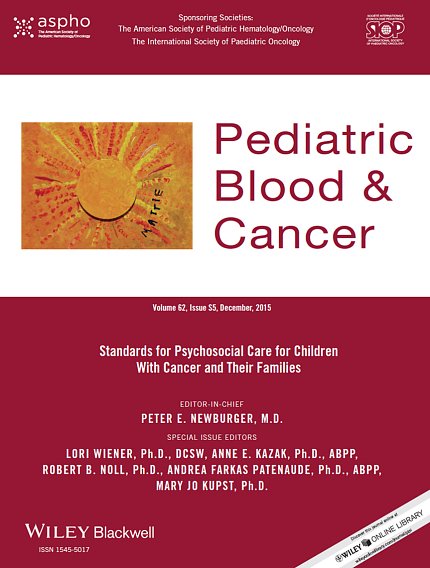Guidelines Help Caregivers Meet Cancer Patients’ Needs

Dr. Lori Wiener has witnessed the importance of maintaining a child’s emotional well-being during cancer treatment.
Her experiences led her to be a senior leader of a project that developed the first-ever evidence-based clinical standards that provide strong recommendations to support pediatric cancer patients’ psychosocial well-being. The standards were recently published in a supplemental issue of Pediatric Blood and Cancer Journal.
“The goal of these standards is to enhance [children’s] experience not only for their medical care but also their emotional and psychological well-being from the time of a cancer diagnosis through survivorship,” said Wiener, co-director of the behavioral health core and head of the psychosocial support and research program of the Pediatric Oncology Branch at NCI’s Center for Cancer Research.
For 30 years, Wiener has worked at the Clinical Center, where she is a principal investigator and also provides therapeutic interventions to pediatric oncology patients and their families on ways to cope and adapt to their diagnosis and treatment.
Previous psychosocial guidelines lacked widely accepted, up-to-date evidence supporting them. The new standards recommend that every patient and family member receive regular psychosocial assessments during treatment, from diagnosis through remission or bereavement.
Additionally, some of the other 14 standards are: patients should receive age-appropriate psychoeducation and anticipatory guidance related to their treatment; long-term cancer survivors should receive psychological and psychiatric follow-up care once treatment ends; all patients should be introduced to palliative care concepts to reduce suffering; and if a child passes away, families should be contacted by a member of the health care team to assess family bereavement needs.
“If you talk with grieving parents, they talk about how disconnected and lost they felt after the intimate and extensive contact with staff who became like a pseudo family,” she said. “Not only do they go home without their child, but [also] they lose the staff who they talked to and who provided them support on a daily basis.”

Wiener said some hospitals already have psychosocial programs for pediatric patients. The hospitals that don’t have them may lack the funds and staff to put such programs in place. These standards include basic elements of psychosocial care and are sufficiently general to be tailored to the resources of individual sites that treat children with cancer, she noted. “We kept the bar low because we wanted something that was digestible and implementable in all health care settings.”
The development of the standards is the result of efforts by the Mattie Miracle Cancer Foundation. Established by Vicki and Peter Brown after their son Matthew died from a rare, aggressive form of bone cancer, the foundation advocates for addressing the emotional needs of patients and their families.
To address this critical need, the originators of the foundation asked Wiener to help lead the effort to create evidence-based standards for meeting the psychosocial needs of pediatric cancer patients and their families. The process included reviewing existing standards and guidelines, surveying experts on their opinion on the most essential services for psychosocial care, gathering feedback from oncologists, psychiatrists, psychologists, social workers, nurses and patients, organizing two “think tank” conferences that included consensus sessions and conducting monthly teleconferences. Eighty-five professionals from 44 institutions were involved.
Wiener called the process “highly unusual” because everyone who participated volunteered their time except for one part-time staffer from the foundation.
Going forward, Wiener predicts “the next phase will be challenging.” This will entail learning about models of care, funding models and potential barriers, each of which is essential for integration of the standards on a broad scale. Nevertheless, she said, with evidence that such care contributes to positive quality of life outcomes, the standards are an important first step in meeting the emotional needs of pediatric cancer patients and their families.
